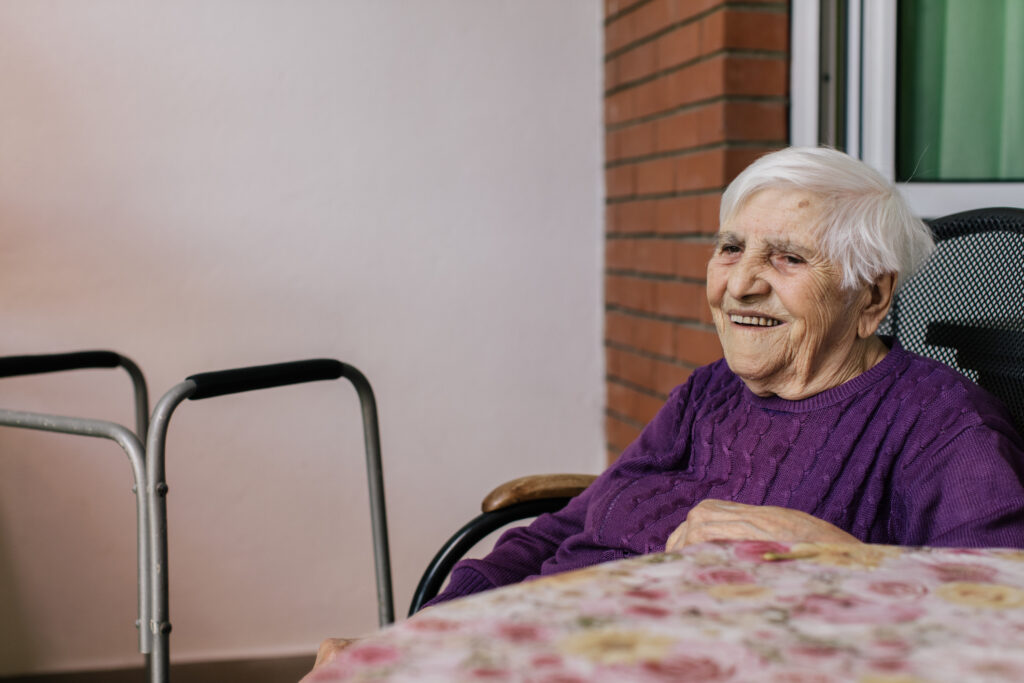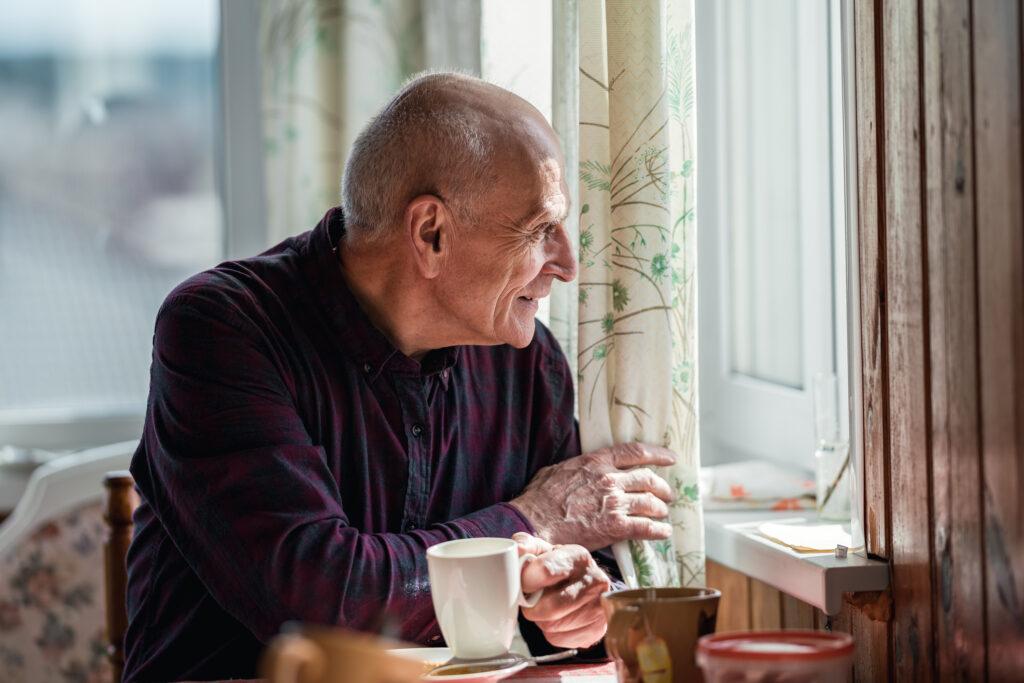
“Charity Bank cared about our mission”
Open Door North East provides refugees with fully furnished accommodation. The charity recently bought three properties with the help of a loan from Charity Bank.
Andy Colclough, Business Development Manager, and John Inglis-Jones, Finance Manager, tell us how they found the loan process…
Why did you need a loan?
Andy: There are huge barriers for new refugees who need to access good quality, safe and secure accommodation. And demand is the highest I’ve ever seen it, as the Home Office has been trying to clear the backlog of asylum applications, which means a large number of positive decisions have been made in a short amount of time. As soon as something becomes available, we’ve got multiple people who could benefit from that room, and we’re having to basically means test to see who’s the most vulnerable.
So, we used our loan to buy three properties, which together can house 12 people. The majority of tenants are new refugees who have been granted leave to remain. We provide a load of support to help them integrate into the local community, so that they can eventually move out of our properties (usually in six to 12 months’ time) and take on their own tenancies.
Did you use your own reserves alongside the loan or get any grants?
Andy: No, we managed to buy the three properties outright with the facility we had and no deposits, but I had to lever all my negotiating skills to be able to do it! We then used our own funds for the extra costs, such as solicitors’ fees and surveys.
We’ve purchased a few properties outright using gifts made to the charity. We felt that those existing assets could work better for us, so we decided to use three of them to secure finance against the new properties.
How many properties do you have altogether?
Andy: Our overall portfolio is 35 properties. We own some, lease some and manage some on the behalf of compassionate landlords. However, our strategic three-year plan is to own or lease the majority of our housing stock.
Why are you taking that route?
Andy: One of our goals is to be self-sustaining. Owning or leasing properties is much better for our financial stability and resilience. We can get more income from the properties that we own or lease as we can access enhanced housing benefit, which brings greater long-term security. We also have more flexibility, for example to provide emergency accommodation to people who have been refused asylum so made homeless with very little funding. When we’re the landlord, we can accept a lower rent for a few of our rooms than another landlord might.
Owning a property also means we can ensure it’s of a high quality and repairs are made quickly. If we care about the dignity of our service users, then we ought to care about the quality of the accommodation that they’re living in. That can be more difficult when we’re managing a property on behalf of a landlord who might not want to put a new kitchen or bathroom in or who doesn’t want to redecorate or solve a damp issue and so on.
Owning also has advantages over leasing. The lease on two of our properties is coming to an end. The owner may decide to sell, which means we lose the income that property generates, and we lose the money we’ve put into improving those properties over the years.
Why did you choose Charity Bank for your loan?
Andy: I’d known of Charity Bank for quite a while. My first contact was with Jeremy Ince. I wear a few different hats, including being part of a church that was looking to buy a property. We considered several buildings and Jeremy was always there to offer helpful advice.
So, when it came to needing a loan for Open Door North East, I spoke to Jeremy again. He was always there if I needed to ask something. He always picked the phone up. And that gave me confidence in Charity Bank as an organisation. I felt, “This is a bank I can work with. They care about us as an organisation and about our mission.”
They’re an ethical bank that want to do good, so they wanted to know, “What do you want to do? Why do you want to do it? Who are your service users?” It felt like a warmer relationship than we’d have with a normal commercial lender.
We did speak to our usual bank and a few commercial lenders about a loan, but they weren’t interested, even though it stacked up financially.
John: Charity Bank was also clearly a professional organisation. I come from a corporate finance background, so I’m familiar with the loan process and the terminology, and I felt that we were speaking the same language.
They were also very knowledgeable about the charity sector. A standard commercial bank wouldn’t have that level of expertise so would be talking about profit and other things that aren’t really in the charity realm. It would also be a small deal for a commercial bank, whereas Charity Bank didn’t make us feel that way.
How did you find the process of getting the loan?
Andy: It took longer than I’d anticipated. Charity Bank were very thorough. There were a number of things that we had to get in place and more hoops to jump through than I’d expected. However, some of that came from an angle of caring for Open Door North East and wanting to make sure that we weren’t going to put ourselves in financial difficulty by taking on the loan.
Some of the delay was down to other factors. We wanted to be approved as a supported accommodation provider for two local authorities. Without the approval, the potential income would have dropped dramatically.
John: I could understand the rationale behind everything that Charity Bank asked for, but it did seem quite conservative at times – a bit ‘belt and braces’. It helped that I have experience in corporate finance so knew what was required and how it needed to be presented.
Andy: Yes, I would have found it difficult without John. But we have that relationship with Charity Bank now, so as we move forward and do what we need to do, that will give the bank confidence, so it hopefully won’t be as lengthy a process to borrow more money, as a lot of the work will already have been done.
Is there anything charities can do to make the loan process easier?
John: They need to structure and present their finances in a way that’s understandable to a lender. If it’s a small charity run by a founder who’s 100% focused on delivering the mission, and finances are something they do at 2 in the morning, it could be difficult to get a loan.
This was your first large loan. Were you worried about taking on debt?
Andy: I worked in an estate agency for 15 years, so I don’t think owning property is a big risk. While there are peaks and troughs in property prices, they tend to go up.
We have an ambitious board who can see the sense in using the properties we own as security to get a loan, buy more properties and benefit more people.
Will you go back to Charity Bank when you need another loan?
Andy: Yes. Obviously, we’ll look at all the opportunities open to us, but I wouldn’t hesitate to go back to Charity Bank and say, “Let’s do it again!”
About Charity Bank
Charity Bank is the loans and savings bank owned by and committed to supporting the social sector. Since 2002, we have used our savers’ money to make more than 1400 loans totalling over £605m to housing, education, social care, community and other social purpose organisations.
Nothing in this article constitutes an invitation to engage in investment activity nor is it advice or a recommendation and professional advice should be taken before any course of action is pursued.


